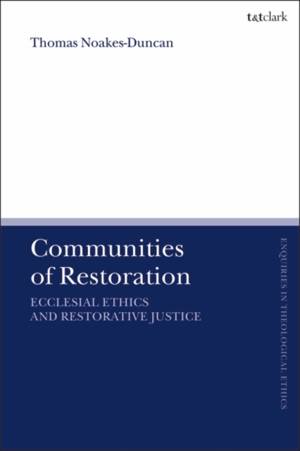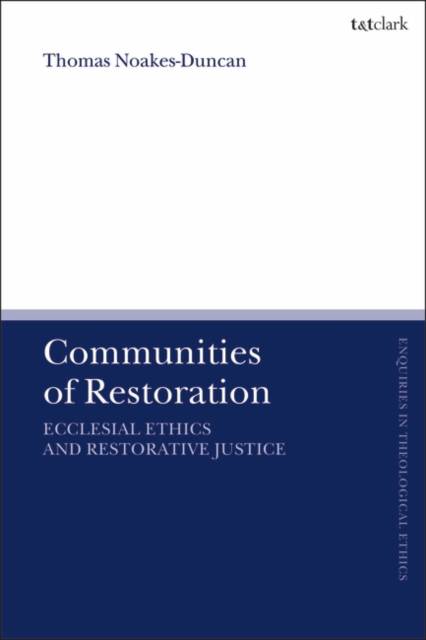
- Afhalen na 1 uur in een winkel met voorraad
- Gratis thuislevering in België vanaf € 30
- Ruim aanbod met 7 miljoen producten
- Afhalen na 1 uur in een winkel met voorraad
- Gratis thuislevering in België vanaf € 30
- Ruim aanbod met 7 miljoen producten
Zoeken
€ 81,45
+ 162 punten
Uitvoering
Omschrijving
By bringing together the insights of ecclesial ethics, an approach that emphasizes the distinctive nature of the church as the community that forms its mind and character after its reading of Scripture, with the theory and practice of restorative justice, a way of conceiving justice-making that emerged from the Mennonite-Anabaptist tradition, this book shows why a theological account of the theory and practice of restorative justice is fruitful for articulating and clarifying the witness of the church, especially when faced with conflict or wrongdoing. This can help extend the church's imagination as to how it might better become God's community of restoration as it reflects on the ways in which the justice of God is taking shape in its own community.
"How does an ecclesial context shape the theological apprehension and praxis of justice?+? This question orientates the book. In particular, it asks how, in view of its members having been admitted into God's restoring justice in Christ, the church might embody in the world this same justice of restoring right relationships. While Christian reflection on the nature of justice has tended to favour a judicial and retributive conception of justice, it will be argued that the biblical understanding of the justice of God is best understood as a saving, liberating, and restorative justice. It is this restorative conception that ought to guide the community that reads Scripture so that it might be embodied in life.
"How does an ecclesial context shape the theological apprehension and praxis of justice?+? This question orientates the book. In particular, it asks how, in view of its members having been admitted into God's restoring justice in Christ, the church might embody in the world this same justice of restoring right relationships. While Christian reflection on the nature of justice has tended to favour a judicial and retributive conception of justice, it will be argued that the biblical understanding of the justice of God is best understood as a saving, liberating, and restorative justice. It is this restorative conception that ought to guide the community that reads Scripture so that it might be embodied in life.
Specificaties
Betrokkenen
- Auteur(s):
- Uitgeverij:
Inhoud
- Aantal bladzijden:
- 288
- Taal:
- Engels
- Reeks:
Eigenschappen
- Productcode (EAN):
- 9780567688002
- Verschijningsdatum:
- 18/04/2019
- Uitvoering:
- Paperback
- Formaat:
- Trade paperback (VS)
- Afmetingen:
- 156 mm x 234 mm
- Gewicht:
- 399 g

Alleen bij Standaard Boekhandel
+ 162 punten op je klantenkaart van Standaard Boekhandel
Beoordelingen
We publiceren alleen reviews die voldoen aan de voorwaarden voor reviews. Bekijk onze voorwaarden voor reviews.








